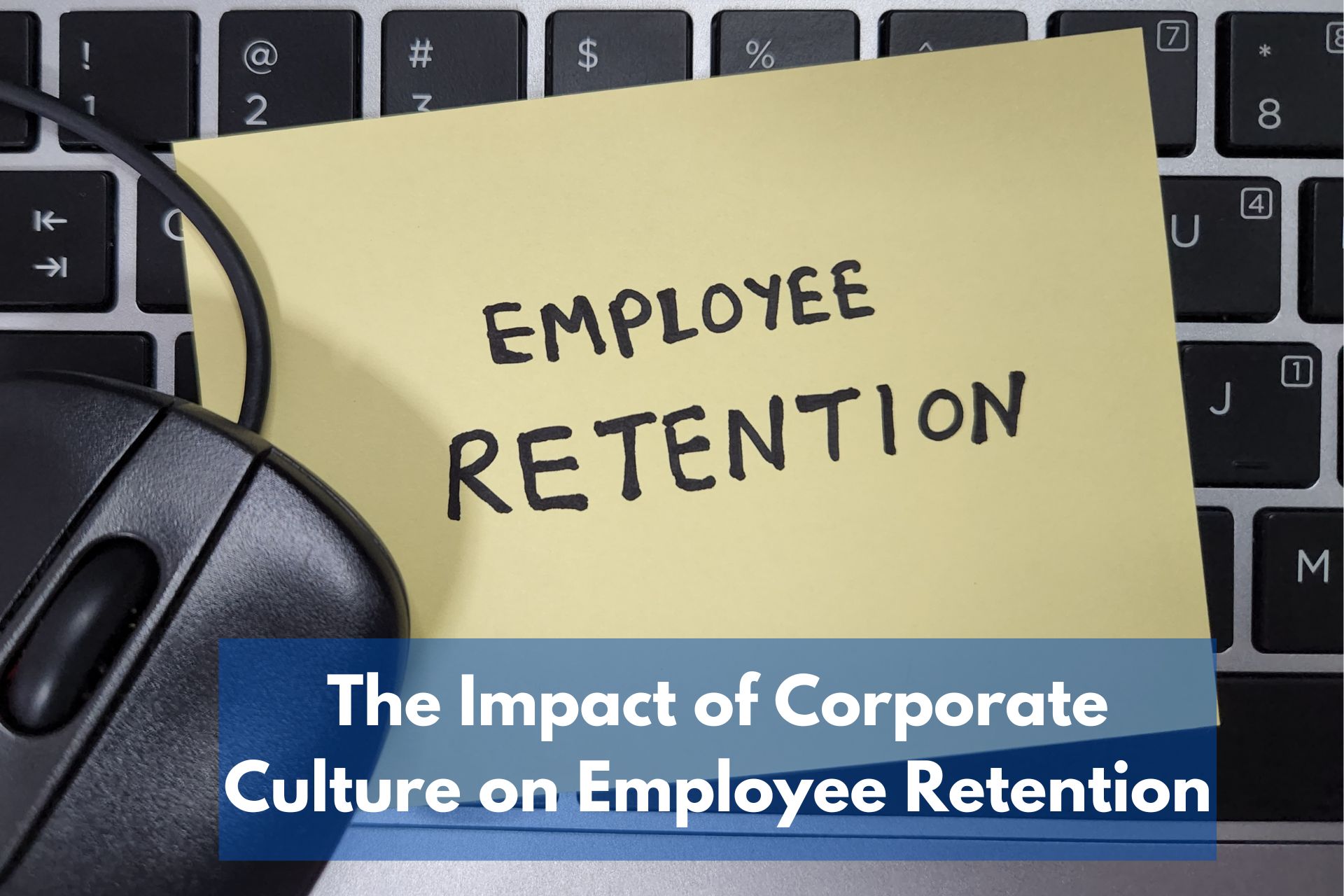The Impact of Corporate Culture on Employee Retention

In today’s competitive business landscape, attracting and retaining top talent is more challenging than ever. While competitive salaries and comprehensive benefits packages are important, they are not enough on their own. The real game-changer is corporate culture. A strong, positive corporate culture can significantly impact employee retention, transforming your company from a revolving door to a home where employees want to stay and grow. Let’s explore how corporate culture influences employee retention and why it matters so much.
What is Employee Retention?
Employee retention refers to an organization’s ability to keep its employees and reduce turnover. It involves the strategies and practices that a company implements to retain its workforce and prevent employees from leaving the organization. Effective employee retention is important because high turnover rates can be costly and disruptive, impacting productivity, morale, and the overall success of the business.
Understanding Corporate Culture
Corporate culture encompasses the values, beliefs, and behaviors that characterize an organization. It’s the “personality” of the company, reflecting how employees interact, how decisions are made, and what behaviors are encouraged and rewarded. A strong corporate culture aligns with the company’s mission and values, creating a cohesive and supportive environment for employees.
Sense of Belonging and Purpose
A strong corporate culture fosters a sense of belonging among employees. When people feel they are part of a community that shares their values and goals, they are more likely to stay. This sense of purpose can be incredibly motivating, making employees feel that their work is meaningful and that they are contributing to something bigger than themselves.
Example: Mission-Driven Companies
Companies do have mission-driven cultures. Employees at these companies often feel a deep connection to the company’s social and environmental goals, which significantly enhances their sense of purpose and belonging.
Employee Engagement and Satisfaction
Corporate culture directly influences employee engagement and job satisfaction. A positive culture that promotes work-life balance, recognizes and rewards contributions, and encourages professional development keeps employees engaged and satisfied with their work. Engaged employees are not only more productive but also more loyal.
Example: Google’s Culture of Innovation
Google is known for its innovative culture that encourages creativity and experimentation. This culture of constant innovation keeps employees engaged and excited about their work, contributing to high retention rates.
Trust and Transparency
Trust and transparency are vital components of a healthy corporate culture. When employees feel that management is honest, open, and has their best interests at heart, they are more likely to stay. Transparency in communication, decision-making, and feedback fosters trust and reduces uncertainty, which can otherwise lead to dissatisfaction and turnover.
Example: Buffer’s Open Salaries
Buffer, a social media management company, practices radical transparency by making all employees’ salaries public. This level of openness builds trust and eliminates guesswork, contributing to higher employee satisfaction and retention.
Professional Growth and Development
A corporate culture that prioritizes continuous learning and development is crucial for retaining top talent. Employees want to grow and advance in their careers, and companies that invest in their development are more likely to keep them. This includes offering training programs, mentorship, and clear career progression paths.
Example: LinkedIn’s Learning Culture
LinkedIn has a strong culture of continuous learning, offering a wide range of training and development opportunities. This commitment to employee growth helps retain top talent by providing clear pathways for career advancement.
Recognition and Reward
Regular recognition and rewards are essential for maintaining high morale and motivation. A culture that celebrates achievements, big and small, makes employees feel valued and appreciated. This positive reinforcement encourages them to stay and continue contributing their best efforts.
Example: Celebration Culture
The company frequently recognizes and rewards employees for their hard work, from shout-outs in meetings to spontaneous office parties, which helps maintain a positive and engaging work environment.
6. Work-Life Balance
A supportive corporate culture recognizes the importance of work-life balance. Policies that promote flexible working hours, remote work options, and adequate vacation time show that the company values employees’ well-being. This balance is crucial for preventing burnout and ensuring long-term satisfaction and retention.
Additionally, partnering with an outbound training company can provide employees with opportunities for personal growth and relaxation through outdoor and team-building activities, further enhancing their overall well-being and productivity.
Example: Salesforce’s Wellness Programs
Salesforce offers comprehensive wellness programs and flexible work options, promoting a healthy work-life balance. These initiatives demonstrate a commitment to employee well-being, which is essential for retention.
Conclusion
Corporate culture is not just a buzzword; it’s a powerful force that can significantly impact employee retention. By fostering a culture that promotes belonging, engagement, trust, growth, recognition, and balance, companies can create an environment where employees are not just willing to stay but are eager to contribute and grow.
Investing in a positive corporate culture is investing in your people—and that’s an investment that always pays off. So, if you’re looking to keep your top talent, start with your culture.
Make it a place where people want to stay, and watch your retention rates soar.




